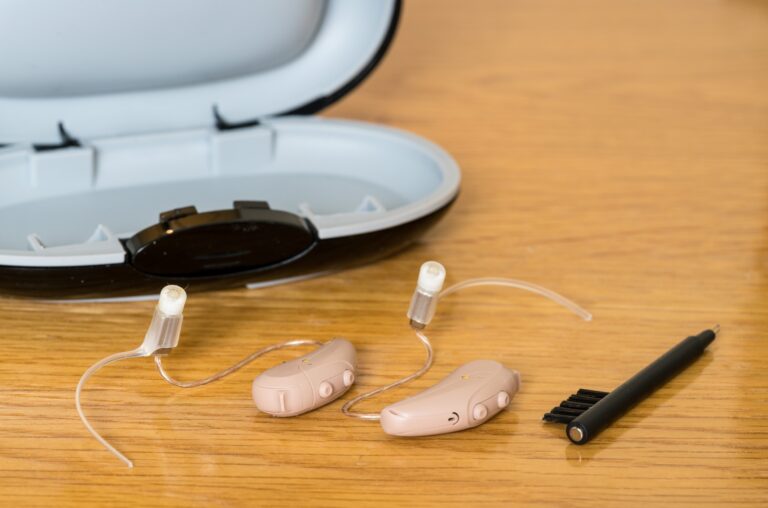Believe it or not, earwax is actually essential to protecting our ear health and fighting infections. However, earwax buildup in your ear and on your hearing aids can cause problems.
Too Much Earwax Harms Hearing Aids

Earwax buildup is actually one of the leading reasons that people see their specialist for hearing aid repairs. Too much earwax can degrade parts of your hearing aid and cause it to malfunction leading to issues like increased feedback and muffled or distorted sounds due to the microphone being blocked. It can also cause your hearing aid to fit poorly in the ear, leading to physical discomfort.
Hearing Aids Increase Risk of Earwax Issues
Unfortunately, hearing aids actually make it more likely for you to have earwax issues. The National Library of Medicine states that “earwax is more likely to accumulate and cause a hearing impairment when normal extrusion is prevented (for example, by hearing aids or by the use of cotton buds to clean the ears).”
The last thing you want to deal with is problems with your hearing aids or experiencing additional hearing loss or tinnitus due to wax buildup in your ears. One of the best ways to avoid this is to know how to properly remove earwax from your hearing aids.
How to Care For Your Hearing Aids
- Have a nightly cleaning routine. Each night before bed, clean off your hearing aids with a soft dry cloth or tools like a soft-bristled brush which you can find in a hearing aid cleaning kit.
- Use wax filters or guards. They can help keep earwax, dust and moisture from clogging your hearing aid’s microphone and receiver. It’s important to change them regularly so that they maintain their effectiveness.
- Consider a hearing aid drying box. These are small containers that you can store your hearing aids in at night that help to remove additional moisture from your device, further reducing the risk of damage.
- Check tubing in BTE models. If you use a behind-the-ear hearing aid, inspect the tube that connects the hearing aid to the earmold regularly for wax and remove any that you find. You can use a small flexible wire or an air blower to get rid of the blockage.
When To Bring Your Hearing Aids To a Specialist
Even when following a proper cleaning routine, issues can pop up with your hearing aid. If you’re noticing reduced sound quality when you’re out running errands or dining with loved ones at Mesa Street Grill, make an appointment to see your hearing aid specialist. There may be an issue with your device, or your hearing needs may have changed.
For more information or to schedule an appointment, contact Tinnitus & Hearing Experts today.